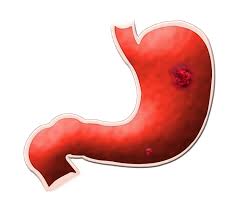There is a long-standing debate about the Does drinking coffee on an empty stomach cause ulcers ? Coffee is a staple for many individuals, and the timing of consumption can significantly impact its effect on the body. This article aims to explore the relationship between coffee intake, stomach ulcers, and digestive health.
Effects of Coffee on an Empty Stomach
When you drink coffee on an empty stomach, the high caffeine content stimulates a surge in stomach acid production. This increase in acid can lead to digestive issues such as acid reflux, heartburn, and discomfort. While some people may not experience negative effects, others might find it disruptive to their stomach lining and overall gastric health.
Coffee consumption and ulcers
There have been studies exploring the association between coffee consumption and ulcer formation. Some research suggests a significant association between coffee consumption and non-erosive reflux disease (NERD) and gastroesophageal reflux disease (GERD). This raises concerns about the potential exacerbation of peptic ulcer disease and its symptoms due to coffee intake, particularly on an empty stomach.
Negative Effects on Stomach
Regular coffee intake, especially on an empty stomach, can have negative effects on the stomach, including increased acid production, which can lead to discomfort and potential damage to the stomach lining. Individuals who experience gastric issues, such as acid reflux or ulcers, may consider adjusting the timing and quantity to mitigate these adverse effects.
Understanding Ulcers and Stomach Acid
Research has suggested an intricate link between the intake of coffee on an empty stomach and the increased risk of ulcers. The acidic nature of coffee, particularly when consumed without any food, can stimulate excess stomach acid production, which in turn may contribute to the aggravation of gastric ulcers.
Impact of Caffeine on Stomach acid
Caffeine, a key component in coffee, is known to trigger the stimulation of stomach acid production. This heightened acid secretion can pose significant challenges to individuals with existing gastric issues, including ulcers, reflux disease, and acid-related discomfort. Especially concerning its association with the exacerbation of digestive ailments and the potential development of ulcers.
Link Between Coffee and Digestive Issues
Coffee can influence digestive health in various ways.
- Stimulates Acid Production: Coffee, particularly when consumed in large quantities, can stimulate the production of stomach acid. This can lead to or exacerbate conditions like gastroesophageal reflux disease (GERD) and heartburn.
- Laxative Effect: Coffee has a laxative effect on some people, possibly due to the release of gastrin, a hormone that speeds up activity in the colon. This can be beneficial for constipation but problematic for those with sensitive stomachs or conditions like irritable bowel syndrome (IBS).
- Irritation of Digestive Lining: Certain compounds in coffee, including caffeine and other acids, can irritate the lining of the stomach and intestines. This might cause discomfort, especially in people with preexisting digestive issues.
Managing Coffee Consumption to Prevent Ulcers

To manage coffee consumption and reduce the risk of ulcers, consider the following tips:
Moderate Intake: Limit coffee to a moderate amount. Excessive consumption can increase stomach acid, potentially aggravating ulcers.
Avoid on Empty Stomach: Try not to drink coffee on an empty stomach as it can irritate the stomach lining, which is especially risky for those prone to ulcers.
Opt for Low-Acidity Coffee: Choose coffee varieties that are lower in acidity. Some brands specifically market low-acid options.
Cold Brew over Hot Coffee: Cold brew coffee tends to be less acidic than hot coffee, which might be gentler on your stomach.
Monitor Symptoms: Pay attention to your body’s response. If coffee triggers or worsens symptoms, it’s wise to reduce consumption or avoid it.
Consult a Healthcare Professional: If you have a history of ulcers or other gastrointestinal issues, it’s best to consult with a healthcare professional for personalized advice.
Best Time to Drink Coffee
For individuals who enjoy their daily cup of joe, it’s important to consider the best time to consume it. As the body’s natural production of cortisol peaks between 8 a.m. and 9 a.m., having coffee first thing in the morning may not be ideal for everyone. It is advisable to have some food in your stomach before drinking coffee to minimize its potential negative impact on the gastric system.
Q: Can I drink coffee on an empty stomach?
A: Yes, you can, but it’s important to be mindful of the potential effects on your stomach.
Q: Does drinking coffee on an empty stomach lead to increased stomach acid?
A: Yes, consuming coffee on an empty stomach can stimulate the production of stomach acid.
Q: Are there any benefits to drinking coffee on an empty stomach?
A: Drinking coffee on an empty stomach can increase alertness and wakefulness due to the rapid absorption of caffeine. This practice can also lead to increased stomach acid production and digestive discomfort for some individuals.
Q: Does decaf coffee have the same impact on an empty stomach as regular coffee?
A: Decaf coffee may have a lower likelihood of causing stomach irritation compared to caffeinated coffee.
Q: How much coffee is too much when consumed on an empty stomach?
A: It varies for individuals, but excessive coffee intake on an empty stomach may lead to stomach pain and discomfort.
Q: Should people who suffer from stomach issues avoid drinking coffee on an empty stomach?
A: Individuals with a history of stomach irritation should be cautious when including coffee in their diet, particularly on an empty stomach.
Q: How does coffee consumption relate to intermittent fasting on an empty stomach?
A: Some individuals include black coffee during their fasting period as it is considered to be calorie-free, but it’s important to consider its potential effects on the stomach.


Leave a Reply